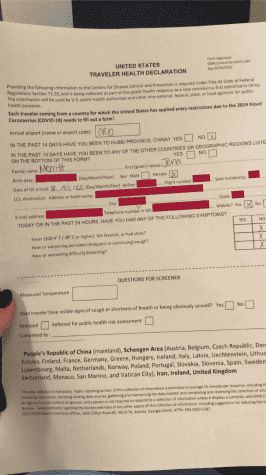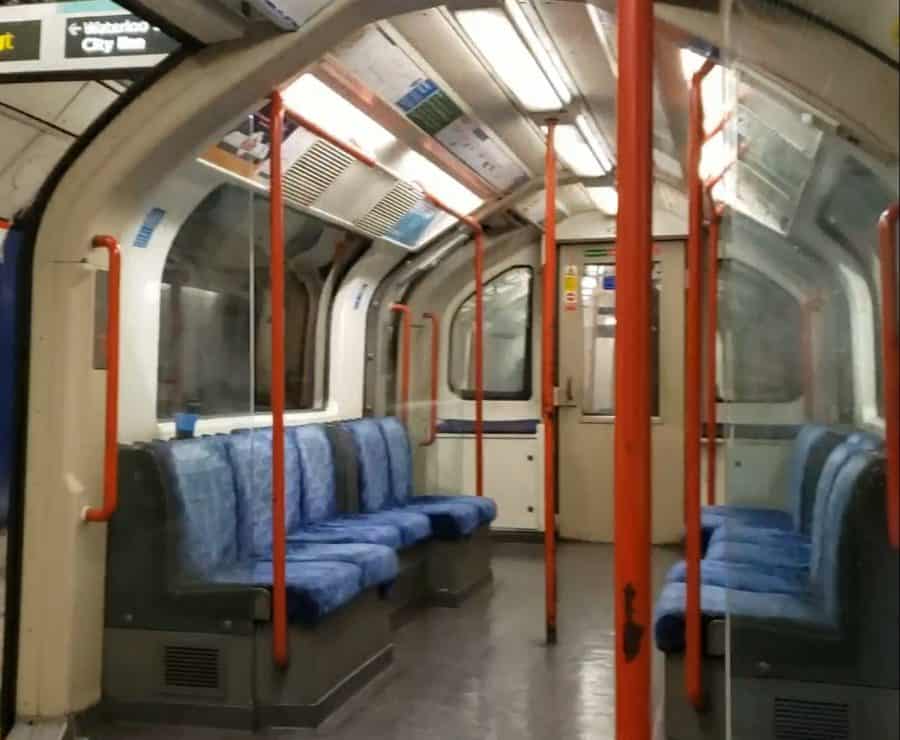Study abroad students feel the pressure of COVID-19
After the World Health Organization (WHO) declared the coronavirus a global pandemic on March 11, UA students studying abroad were faced with a difficult decision: Return home or stay abroad.
March 27, 2020
Jena Merritt, a junior majoring in international studies and management, awoke on March 12 to texts from her distressed friend. The friend had gotten an email from her home university at 3 a.m. with orders to immediately return home, and she needed Merritt’s help packing up months worth of belongings. But, when Merritt woke up, her friend was already gone.
Prior to the WHO announcement, life in the Netherlands, where Merrit was studying, was unphased by emerging news of the coronavirus.
“Coronavirus wasn’t really a huge deal at that point. It wasn’t a pandemic.” Merritt said. “Life went on as normal. We had a spring break the last week of February. When we got back, there were complications in Italy, and people were starting to be sent home. The Netherlands didn’t really care. They were doing life as normal.”
But, when President Donald Trump announced a US travel ban on March 11, things changed very quickly for Merritt and other study abroad students.
“Within the week I was already coming home,” said Caroline Ward, a junior majoring in public relations who was supposed to spend her spring semester working as an intern in Barcelona, Spain.
Five days before the ban, Ward’s boss came in one morning and told every employee that they were “shifting to remote work.”
Ward ended up returning home on March 14. This was three days after Trump issued a partial European travel ban.
“I woke up the next morning, and the program was canceled, the travel ban was in place, and everyone was scrambling trying to get home,” Ward said.
Although Ward and Merritt have since returned home from their study abroad, some students like Miranda Reed, a senior majoring in mechanical engineering, have decided to stay.
Reed is beyond upset that she spent less than two months in the U.K. and is now being recommended by the US government and the University to return home immediately. Ever since she started college, she was “determined to study abroad in England.”
“I made it my goal to work as hard as I could to get my degree in three and a half years,” Reed said. “And then take my last semester of my senior year to study abroad.”
With plans to leave on April 1, Reed is still in London and is relieved that her parents are with her. They are seeing first-hand the impacts of Prime Minister Boris Johnson’s actions to combat COVID-19 through a nationwide lockdown.
“We’re seeing everything get shut down, from restaurants and pubs to all the attractions,” Reed said. “None of the museums are open. The underground [subway] is cutting services, same with the bus system.”
On the other side of the English Channel, Merritt is tasked with making a tough decision.
While she felt like the threat to her health was no greater in the Netherlands, going home for Merritt would mean an immediate void of her 6-month student visa. She would then not receive any credit from the courses she paid to enroll in. To stay meant she risked getting infected outside of the US.
“My whole plan was to come home for a couple weeks or a month then go back,” Merritt said. “But, that’s not how pandemics work.”
After careful emailing and phone calls with Chad Berry, the associate director of international health, safety and risk management for study abroad at the University, they figured out a game plan for Merritt to return home.
HEADING HOME
While many are still scrambling to come home, questions have surfaced from study abroad students that used third party companies like University Studies Abroad Consortium (USAC) and Center for International Studies (CIS) Abroad about whether or not they would be receiving financial compensation for the second half of their trips.
“My program [USAC] has no idea what they’re doing,” Merritt said. “They haven’t given any refunds. UA gave me more answers than my program, which isn’t really saying much.”
Merritt’s main concern, however, was getting home.

Merritt stood in shock as she arrived at the airport terminal and saw only 10 flights scheduled to fly out that morning. Merritt was told by her friends to arrive early since people were being pulled aside for extra screening as they went through customs, which would take about four hours.
Once Merritt arrived, she was told by the staff to check as many bags as she wanted for her flight. The terminal was a sheep’s roar from what she experienced upon her first arrival to the Netherlands. Merritt noted that for a plane with a potential capacity of over 200, there were maybe 60 people on the plane.
The Department of Homeland Security designated 13 airports, such as Chicago, New York (JFK) and Dallas, to allow international flights. Each study abroad student had very different experiences as they deboarded the plane.
When Merritt arrived in Chicago, she was given a health form from the CDC that asked where she had traveled, if she was feeling sick and, if so, what her symptoms were.
As Merritt took what felt like a “10 mile walk” to customs, she noticed that all officers were wearing gloves. Once she got through customs, she was sent to be inspected by the CDC.
After handing her an informational packet, the official then checked her temperature, asked her a few questions about where she had been, if she had any flu-like symptoms and recommended she self isolate for 14 days, then they sent her on her way.
Ward ended up coming home March 14 through the JFK airport in New York. When she arrived, however, Ward noted that the recommended 14-day quarantine wasn’t being enforced by anyone.
“I don’t really know why it’s not a consistent procedure,” Ward said “I guess a lot of logistics have yet to be figured out. It’s sad, with this being the critical period.”
SELF-ISOLATION
Upon her arrival in Chicago, Merritt has struggled to self isolate, starting from the car ride home, where she was cramped with her mom and sister. She’d face the same issue at home.
“My mom and sister live in a two-bedroom apartment. I don’t have anywhere to self isolate.” Merritt said. “If I get coronavirus, they get coronavirus.”
Both Merritt and Ward take daily temperature checks in the morning and at night, which is recommended by the CDC. The purpose of this is to note if they are developing a fever. Although self isolation is not government mandated, Ward is in a much different living situation than Merritt. Ward is currently self isolating in a hotel room in Chicago. Although the 14-day self-quarantine is not enforced, Ward has made it her goal to stay in self-quarantine till the suggested time is up.
“Right now, we’re on the honor system,” Ward said. It’s not like they’re coming to your door everyday to make sure you’re in your room… I am doing the self quarantine because it’s the right thing to do.”
Ward said she currently feels fine, though she has been emailed by her internship company back in Spain that multiple of her fellow program classmates that she interacted with closely have tested positive for COVID-19.
“It could be that I go through this period [14-day self isolation] and nothing happens,” Ward said. “Or, if symptoms do come up, I’m still in quarantine, so I wouldn’t have been exposed to anyone.”
Ward’s advice for people in self-quarantine is to make a daily to-do-list of tasks to accomplish each day. Try and maintain a healthy diet and try to perfect new skills. She hopes that once she goes home, she may learn the piano from her brother.
“It might be a personal sacrifice right now, but in a few weeks if all this dies down because we made a difference today rather than later it will have all been worth it,” Ward said. “Be responsible. It’s irresponsible at this point not to be practicing social distancing.”
Ward’s advice comes out of concern for those who aren’t following CDC guidelines and may not be taking the virus seriously. Though she went through great lengths to return home, she noted that the extra precautions were necessary.
“People think it’s just the old people and they should stay inside,” Ward said. “No, because you’re passing it around to people that will come in contact with them and put them at risk. If you get sick yourself, the hospitals don’t have the means to take care of a bunch of people getting sick at the same time. It’s not just affecting older people or people with a weaker immune system… I don’t think people get how important social distancing is right now. I don’t think people get it.”
Editor’s Note: This story has been updated to reflect that peers in Ward’s program tested positive for COVID-19, not her coworkers.

